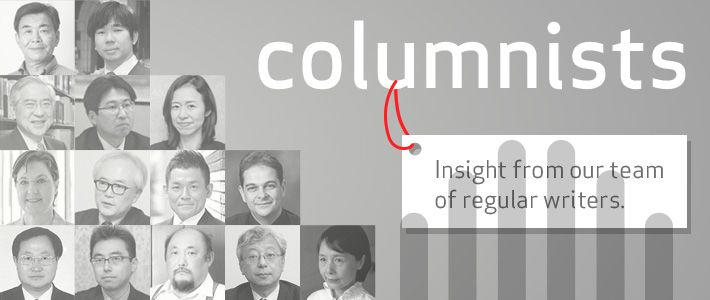
How to Fix Japanese Jūdō
Culture- English
- 日本語
- 简体字
- 繁體字
- Français
- Español
- العربية
- Русский
Shock at the London Olympics
Japan brought home 38 medals from this year’s London Olympics—a new record. Amid the celebrations, however, was a matter of some concern: The gold medal count in men’s jūdō was a disappointing zero. The women fared only slightly better, with just one gold medal, won by Matsumoto Kaori in the 57-kilogram weight division.
Recent rule changes have abolished the kōka score,(*1) and directly grabbing the trouser leg is now illegal. These revisions were introduced to encourage competitors to use their jūdō skills to go for an outright win instead of gradually building up an advantage by accumulating points. These rule changes should have been to the advantage of Japanese jūdōka, who have always sought to win by ippon—the maximum score achieved by a winning move that automatically finishes a fight. This only made Japan’s performance all the more disappointing. There is no room for excuses.
Escaping the Insular Mindset
So what was the problem? On an individual level, all the athletes selected had the skills to compete at the highest international level. Japanese jūdōka continue to achieve impressive results at all of the major tournaments. This at least remains unchanged.
But it is also true that the results have been less consistent than previously. This is especially the case for the heavier weight divisions, which Japan has dominated in the past. There is no longer any clearly dominant athlete. Japan's idealistic approach, which assumed that whoever was selected would surely bring home the gold, led only to defeat. We are left with the inescapable conclusion that there is something wrong with the way we are training heavyweight jūdōka in Japan. The winner of the men’s over-100-kilogram event was France’s Teddy Riner, who has also won four consecutive world titles at this weight level. What does Japan need to do in order to turn out an athlete of that caliber again?
I believe that we need to break free from the insular, closed mentality currently prevalent in Japanese jūdō. The thinking in the “jūdō village” goes something like this: Jūdō is a traditional Japanese sport, and therefore ought to be one of Japan’s strongest events. If the athletes are coached by Japanese coaches and trainers steeped in the long traditions and history of Japanese jūdō, they naturally ought to be victorious in global competition. It is taken for granted that the instructors should all be Japanese.
But the fact is that the Japanese can no longer be assured of victory on the global stage. The time has come to learn from the rest of the world. This may sound like an obvious idea, but it is one that has yet to permeate the closed society of Japanese jūdō.
Saitō Hitoshi, gold medalist at the Los Angeles and Seoul Olympics in the over-95-kilogram category and head coach of the men’s team at the Beijing Olympics, wrote a column in the Yomiuri Shimbun on August 5, 2012, in which he admitted, “I knew this day would come.” Both he and the executive of the All Japan Jūdō Federation realize that Japan can no longer win in world tournaments. In order to break out of the insular mindset and start winning again, reform is essential. This will mean bringing in foreign trainers and encouraging individual jūdōka to study abroad.
Globalization and Structural Reform
It is also essential to expand the roots of Japanese jūdō. Look at France, for example, home of Teddy Riner, winner of four consecutive world championships. The country has successfully built jūdō training facilities throughout the country and is producing a steady stream of quality athletes. Today, there are far more people practicing jūdō in France than in Japan. Many of Japan’s top competitors come from schools that are traditionally strong in jūdō. This dependence on a small number of elite schools makes it extremely difficult to establish broad roots for the sport.
Shinohara Shin’ichi, the coach of the men’s team at the London Olympics, wrote in an article in the Mainichi Shimbun on August 7, 2012 that he believes Japan’s relative decline is due to problems with the athlete selection process and the difference in physical power between Japanese and foreign opponents. I think the psychological pressure on athletes to bring home a gold medal is another problem. Although jūdōka should of course aim for gold, we should accept that there is no shame in winning a silver or bronze medal either. I think perhaps a more positive outlook is needed here.
Jūdō is now a global sport. I am all in favor of “ippon jūdō” that maintains the traditions of jūdō as a Japanese martial art. But if Japanese jūdō continues to prioritize this ideal over everything else, it risks becoming increasingly isolated from the rest of the world. Japan’s jūdō authorities need to develop a wider perspective that reflects the global nature of the sport today. Without prejudice or taboos, we need to undertake an urgent review of the current situation. Only in this way can we identify the steps we need to take to put Japanese jūdō back on top of the world.
(Originally written in Japanese on September 10, 2012.)
(*1) ^ There is a range of scores in jūdō. Ippon is the highest score and a competitor who receives ippon wins the fight. Kōka, now abolished, was awarded for smaller “effects” achieved within a bout.—Ed.
France Sakai Kazunari Judo sports Olympics Saito Hitoshi Shinohara Shinichi Teddy Riner London